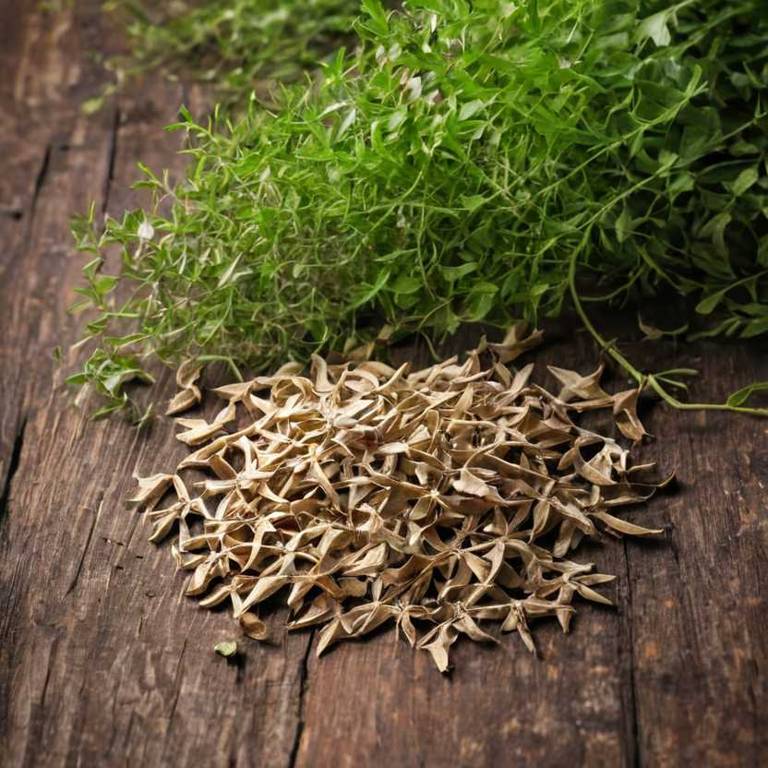European Ash (Fraxinus excelsior)
European Ash (Fraxinus excelsior) is a member of the Oleaceae family, native to Europe, Western Asia, and North Africa. Traditionally, its bark, resin, and wood have been used for decoctions, infusions, and poultices.
This herb is particularly valued for its anti-inflammatory, astringent, and bitter actions, and has a long history of use in european herbal medicine, mediterranean herbal traditions, and traditional chinese medicine.

Quick Facts / Key Information
| Common Name | European Ash |
|---|---|
| Scientific Name | Fraxinus excelsior |
| Plant Family | Oleaceae |
| Genus | Fraxinus |
| Species | excelsior |
| Native Range | Europe, Western Asia, North Africa |
| Plant Parts Used | Bark, Resin, Wood |
| Primary Medicinal Actions | Anti-Inflammatory, Astringent, Bitter |
| Primary Traditional Systems | European Herbal Medicine, Mediterranean Herbal Traditions, Traditional Chinese Medicine |
| Historical Preparation Methods | Decoction, Infusion, Poultice |
Botanical Identity
- Scientific Name
- Fraxinus excelsior
- Common Name
- European Ash
- Synonyms / Alternative Names
- Common Ash, Ash Tree, Common Ash
- Plant Family
- Oleaceae
- Genus
- Fraxinus
Botanical Description
- Growth Habit
- Perennial woody plant.
- Height
- It typically reaches a height of 15 to 30 meters.
- Leaves
- Simple leaves with opposite phyllotaxy, dark green upper surface, pale green lower surface, and prominent stomatal bands.
- Flowers
- Inflorescences are catkins arranged in two distinct tiers, with male and female flowers occurring on separate plants, male flowers are yellowish-green with elongated stamens, female flowers are greenish with a single pistil and ovary
- Stems
- Elongated, erect growth habit, opposite branching pattern, smooth, glabrous surface, presence of lenticels, pith with distinct central cavity.
Traditional Uses / Historical Use
Traditional Systems
- European Herbal Medicine
- Mediterranean Herbal Traditions
- Traditional Chinese Medicine
- Japanese Kampo Medicine
Historical Preparation Methods
- Decoction
- Infusion
- Poultice
- Powder
Medicinal Actions
- Anti-inflammatory
- Commonly referenced as a warming anti-inflammatory, for irritation-related applications.
- Astringent
- Traditionally described as a calming astringent, in structural-support contexts.
- Bitter
- As described in traditional systems, a moderate bitter, for flavor-based applications.
- Tonic
- In herbal literature, noted as a soothing tonic, for broad-use formulations.
Active Compounds
- Flavonoid
- A chemical class commonly identified in plant tissues, especially flowers and leaves.
- Tannin
- Plant-derived compounds known for their ability to bind proteins.
- Coumarin
- A class of aromatic organic compounds found in many plant species.
- Phenolic Acid
- A class of aromatic plant compounds commonly found in leaves, seeds, and stems.
Modern Research Overview
Scientific literature concerning this plant spans multiple areas, including phytochemistry and laboratory research. Detailed analysis of published studies is not included at this time and will be added as part of future editorial expansion.
Safety & Contraindications
- General Precautions
- The use of this herb may warrant general caution in certain situations.
- Contraindications
- There is insufficient evidence to determine specific contraindications related to this herb.
- Allergies
- Sensitivity or allergy-related effects have not been clearly established.
- Drug Interactions
- Interactions between this herb and prescription medications are not clearly established.
- Toxicity
- Toxic effects associated with this herb have not been well documented.
- Pregnancy & Breastfeeding
- Safety during pregnancy and breastfeeding has not been well documented.
Preparation & Usage Methods
- Infusion
- Plant material is steeped in hot water to extract water-soluble compounds.
- Decoction
- A preparation method involving prolonged boiling of roots, bark, or dense plant material.
- Poultice
- Poultices involve external application of prepared plant matter.
- Tincture
- This method preserves plant compounds using an alcohol-based solution.
- Powder
- Plant parts are dried and mechanically reduced to a powdered form.
Growing, Harvesting & Storage
Growing / Cultivation
- Soil
- Prefers loamy soil with well-drained conditions. Typically grows best in organically rich soils.
- Sunlight
- Thrives in partial shade. Tolerates full sun to partial shade.
- Watering
- Prefers well-balanced moisture levels. Tolerates periodic dry conditions.
Medical Disclaimer
The information provided on this page is for educational and informational purposes only. It is not intended to diagnose, treat, cure, or prevent any medical condition. Always consult a qualified healthcare professional before using any herb for medicinal purposes.